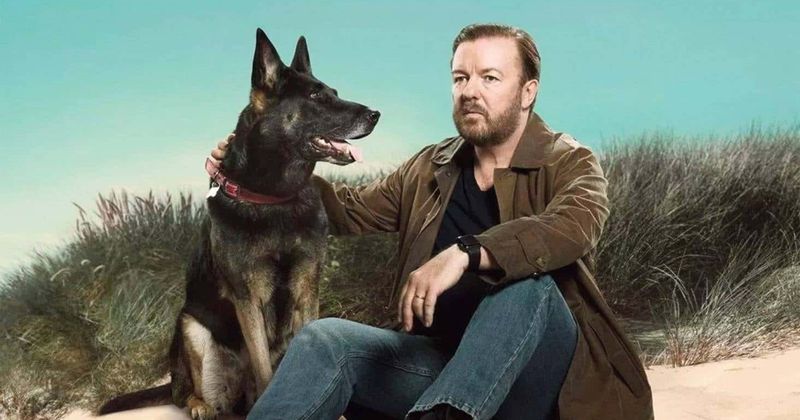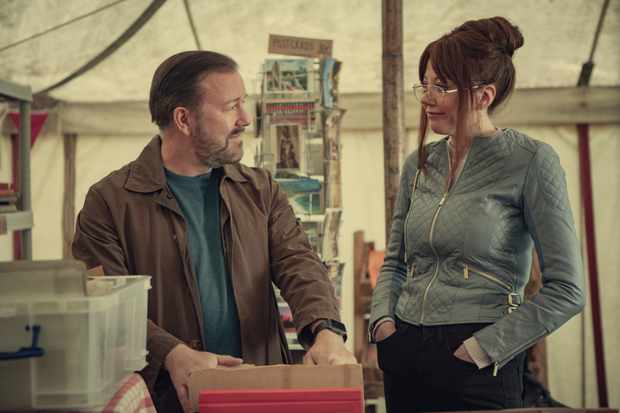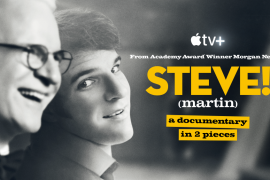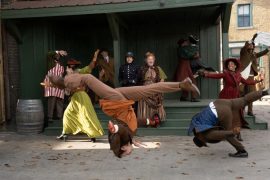
“Is there a heaven?”
It is a question Ricky Gervais’ character Tony is asked in the final episode of After Life. The series returned for a third and final, six-episode season Friday night on Netflix.
In real life and in fiction, Gervais has made it clear that he does not believe in Heaven, God, angels or The Hollywood Foreign Press Association. This young lad who has asked the question, however, is in hospital and clearly in a brave fight against a terrible disease.
So, spoiler alert: Tony performs an act of kindness. That is pretty much the big take away from the end of After Life. Be an angel now on earth. Be as kind as you possibly can.
Therefore, I must be kind in reviewing Season Three, even though I may not believe in it as much as the other two seasons.
One problem is expectations. I loved the first two seasons, but with all of us suffering through more isolation and uncertainty, we all crave a little more Ted Lasso. We want the message to be “I Believe.” That ain’t what Gervais is selling here folks and while that’s fair it is also harder to embrace during a pandemic.
advertisement
This may be the most melancholy season of them all, or just seems that way after Season Two showed Tony finding some meaning to his life. A couple of key characters are referenced but missing, including Rosin Conaty as Tony’s protitute friend who moves in with the mailman (Joseph Roland Wilkinson). Sandy, the young intern from Season’s One and Two (played by Mandeep Dhillon), is also gone and is replaced with another sad sack of a character, which frankly seems like an odd hire. The quota was filled.
Other secondary characters struggle in ways that seem extra bleak. Tony’s boss/brother-in-law Matt (Tom Basden) can’t win at sports or in life. Brian and James (David Earl, Ethan Lawrence) slip into a whole new category of pathos. With her relationship with Tony at a dead end, long term care nurse Emma (Ashley Jensen) seems particularly underserved in Season Three.
Plus there are two new podcaster jerks who invade the office and other scenes and they are just very unpleasant and not that funny. The shrink character from Season Two (played by Paul Kaye) was like that but so audaciously original in his jerkiness that he was at least funny.
More developed this season is Kath (Diane Morgan) but even she has to suffer through much heartache to get to a glimmer of hope.

Tony’s graveside shrink Anne (Penelope Wilton) does provide her usual heart and wisdom from their bench but even their moments seem a bit rushed this season.
Viewers looking for a six episode march to a happy ending will be left wanting. If you’re hoping his magnificent dog Brandy will find Tony’s lost reason for living down a well, well, it just doesn”t happen — even though he does acknowledge that the dog has saved his life.
Tony still grieves his wife Lisa (Kerri Godiman) and in many ways she’s never been more present in this series, mainly in laptop flashbacks. He does embrace the notion that acts of kindness are his mission in life and that is a takeaway we all need to hear. Her final laptop meditation puts it all on a platter for Tony in a poetic way that probably helped inspire the entire series for Gervais.
Life can be cruel and sad and overwhelming and kudos to Gervais for not shying away from all of that. The dark comedy makes the absurdities that much more fun to experience.
The series ends at a fairgrounds and, to me anyway, there is something a little Felliniesque going on with various characters laughing it up on a merry-go-round. Tony says at one point that life is like a great ride but then you have to give up your seat at the end so the next person can experience that joy. Maybe so, but you can’t blame some of us for wanting to enjoy the ups and downs with these folks a season or two longer.






